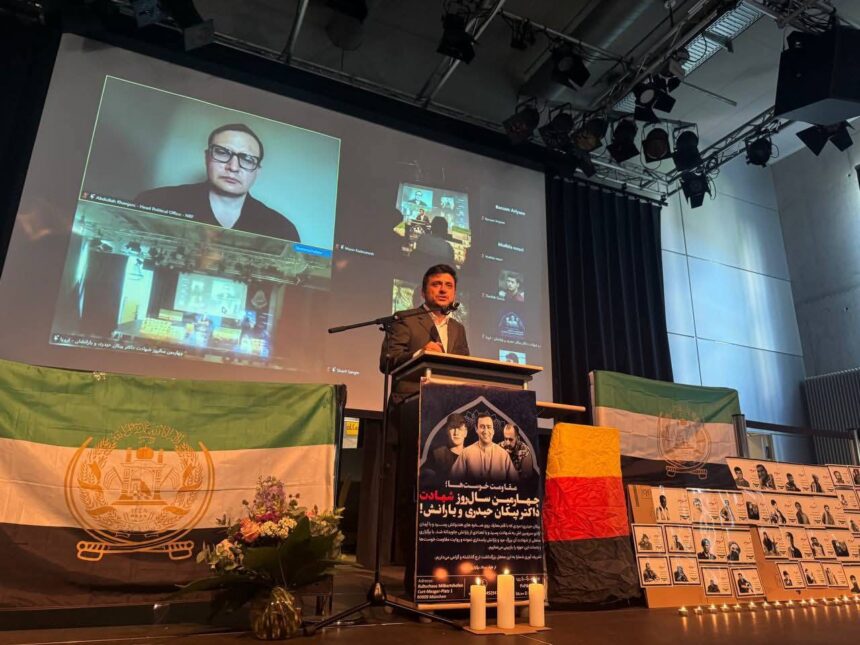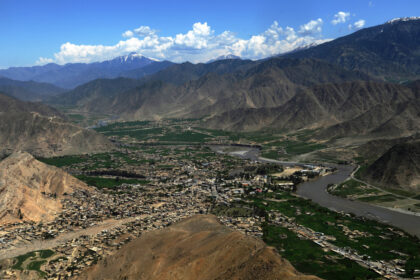RASC News Agency: On Saturday, June 29, members of the Afghanistani diaspora in Germany gathered in Munich to mark the fourth anniversary of the death of Dr. Paykan Haidari and two of his comrades, who were martyred during the Second Khost Uprising against Taliban forces. The commemorative event brought together prominent figures from the cultural, political, and academic communities of the Afghanistani exile population. The ceremony aimed not only to honor the memory of those who fell resisting tyranny but also to revive the message of resistance and examine the enduring intellectual and practical legacy of Dr. Haidari and his fellow fighters. The event opened with the screening of a documentary chronicling Dr. Haidari’s life, highlighting the harrowing decisions, immense sacrifices, and unwavering determination that marked his defiance of Taliban rule.
Abdullah Khenjani, the Political Director of the National Resistance Front of Afghanistan, addressed the gathering, stating:
“Despite living a comfortable life in exile, Dr. Paykan consciously chose the difficult path of resistance. He stepped onto the battlefield not to observe history but to shape it with his blood and integrity.” Khenjani divided Afghanistan’s current political geography into three categories: the land of surrender, the land of resistance, and the land of indifference. Emphasizing the need to move beyond symbolic tributes, he added:
“The memory of our martyrs must become a lasting inspiration to preserve our national identity and continue the struggle against imposed darkness.”
Former Member of Parliament Zia Aryaeenejad echoed this sentiment, declaring:
“Afghanistan’s fate will not be determined in diplomatic halls but on the frontlines of resistance. Today, it is the trenchescnot slogans that will define our future.” Azizurrahman Sakhizadah, university professor and one of the founders of the Second Khost Resistance, reflected on the roots of the uprising:
“This movement did not emerge from political elites it rose from grassroots awareness. It was ordinary citizens, abandoned by the state and ignored by institutions, who stood to defend their homeland and heritage.”
Sakhizadah warned against illusions of reform under the Taliban regime, stating:
“The Taliban are structurally incapable of change. The only path forward is through resistance and belief in indigenous strength.” The event concluded with a declaration emphasizing that the ceremony was not only a tribute to the fallen but also a call for political awakening, national unity, and renewed commitment to the path of resistance.
Dr. Paykan Haidari, among the first martyrs of the Second Khost Uprising, was killed in July 2021 (Saratan 1400) during a Taliban assault in the Khush Dara area of Khost District, Baghlan Province. Four years later, his name continues to resonate as a symbol of unwavering defiance among the Afghanistani diaspora an embodiment of hope in an era of enforced silence and institutional collapse.






